Sex, drugs, and DTC: Why “taboo” brands are owning marketing
When’s the last time you saw a Facebook ad for a vibrator?
Trick question—you haven’t.
Brands that sell sex toys, sexual performance supplements, cannabis, and other “taboo” items are forbidden from advertising their offerings through conventional channels.
“A customer once told us, ‘I love your product, but I noticed your advertising doesn’t really tell me what you do. Why haven’t you tried being more direct and talking about the benefits?’” says Greg Lam, chief brand officer of Future Method, a science-backed intimate care company founded initially for the gay male community, but which has since grown to be embraced by all genders and sexualities.
Lam responded, “We can’t. The more honest and direct we are, the more likely our content will get taken down.”
Punished for telling the truth? Seems backwards, right? But when regulations prevent you from throwing money at a problem, you have no choice but to build quality relationships with potential customers instead.
“We have to get creative when it comes to marketing,” says Simon Derbaix, co-founder of Biird, a brand that offers a modern take on sex toys. “We have to try a little bit harder than a traditional brand. But that also makes it fun.”
The more honest and direct we are, the more likely our content will get taken down.
Greg Lam, chief brand officer, Future Method
Blocked from building an audience
How would you grow your brand if you couldn’t promote it through paid advertising? If you’re a marketer behind a “taboo” brand, it’s a luxury you never had in the first place. Here are the top challenges “taboo” brands face when working with third-party platforms:
Content restrictions on paid social ads prevent you from telling true stories
It’s not that “taboo” brands are never allowed to advertise through social media. They can attempt to follow Facebook’s guidelines around prohibited and restricted content, but getting an ad approved often comes at the cost of brand identity.
That’s been the case for Future Method, which, according to Lam, faces a double stigma as a company that sells sex products for a marginalized community. “I often find that if you’re promoting a product that was created for heteronormative sex, usually there’s a way around the rules,” Lam explains. “But with Future Method, you’re also involving the LGBTQ+ community, so I feel like it’s often another strike against us.”
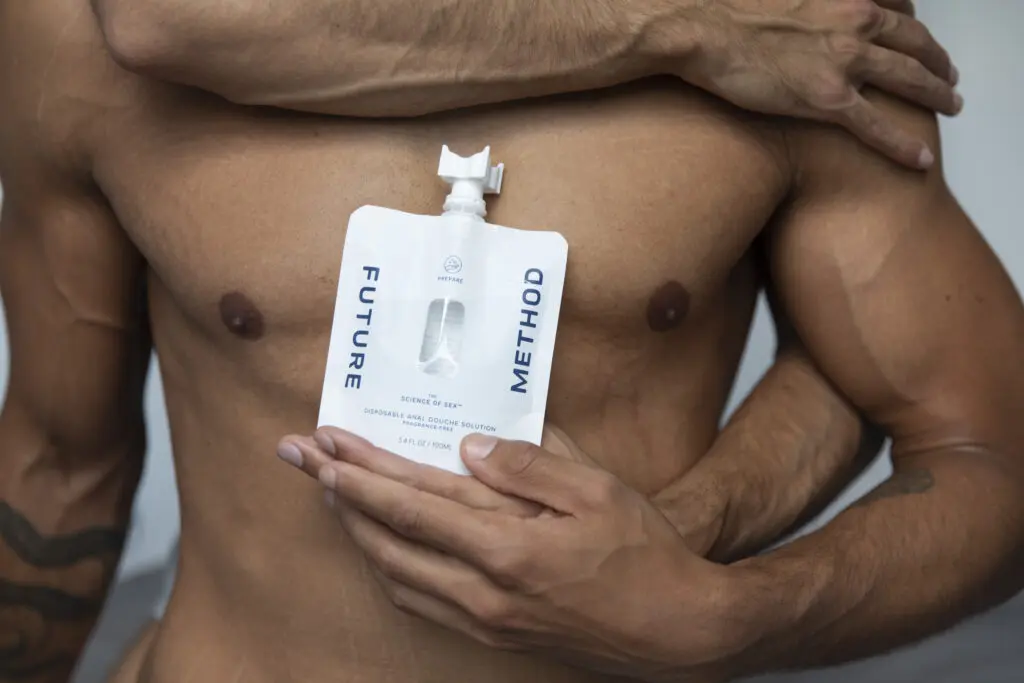
It’s a Catch-22—“taboo” brands need to be vague in order to get approved on digital platforms, but that can dilute the intended message for consumers. And the door is often slammed on even the most cautious efforts.
Ads in the sexual wellness space that focus on health over pleasure are supposed to be allowed, according to Facebook. But “taboo” brands that tout medical benefits can’t seem to catch a break, either.
Consider mate, a men’s sexual performance supplement brand—they’ve sought to make their ad creative reflect what they’ve seen in approved ads in the space by leaning on humorous euphemisms and provocative imagery.
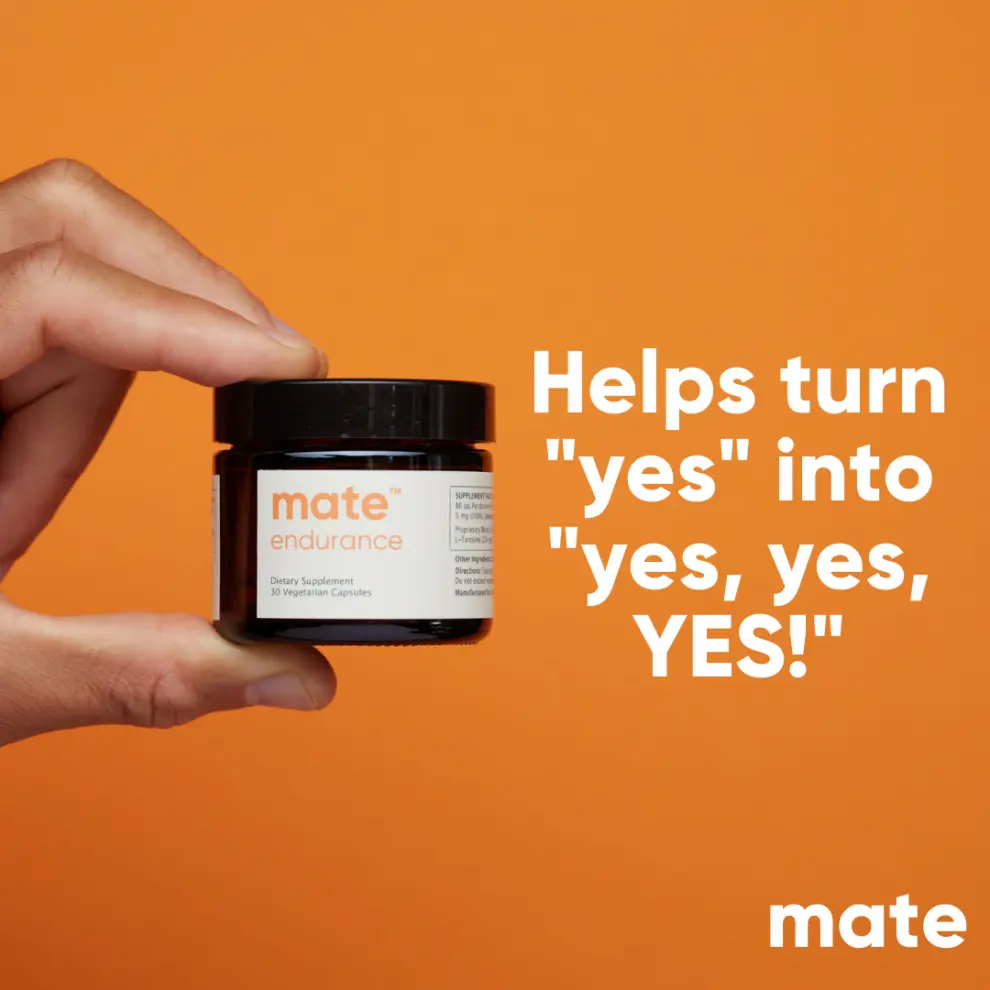
“But we still haven’t been able to successfully unlock Facebook as a customer acquisition channel, even though we’re in the same vertical,” points out Jordan Elist, founder. “Regardless of what we’ve tried in terms of testing out different ad creative, landing pages, and language, it seems as though there’s a red flag associated with our account.”
While Elist acknowledges that it’s important for these platforms to impose rules and regulations that ensure they’re serving an appropriate audience, it’s nearly impossible for him to promote his products to anyone—even those who might find it useful.
“I’d like to think that as more and more people become comfortable speaking about issues around sexual wellness, these advertising platforms would understand users want to learn more about these topics and find solutions that address them,” Elist points out. “But in reality, brands like us are forced to play it safe.”
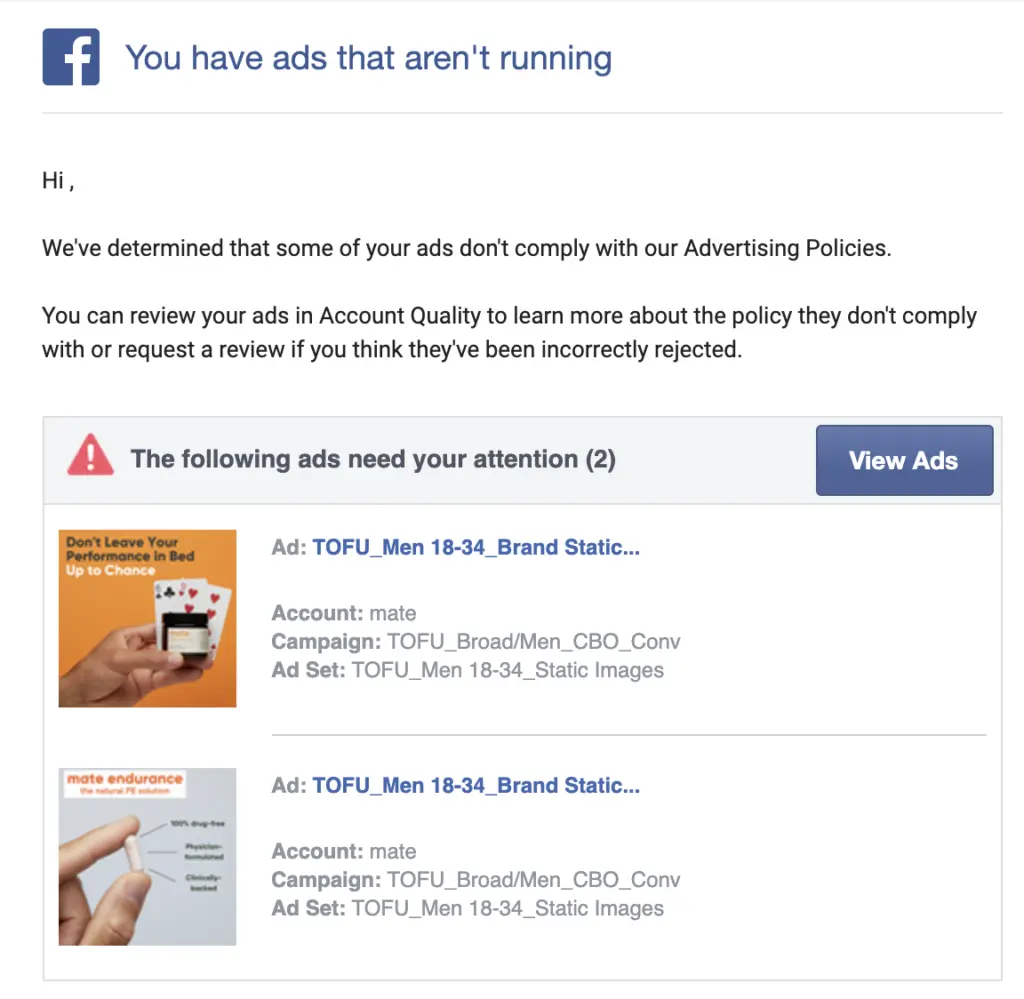
Brittany Carbone, founder of TONIC, a CBD company, agrees. Even though CBD and cannabis are becoming less “taboo” as state laws open up, the FDA has yet to take a definitive stance on how they want to classify and regulate ingestible CBD, she explains—and “in the meantime, running paid social campaigns is like navigating a minefield.”
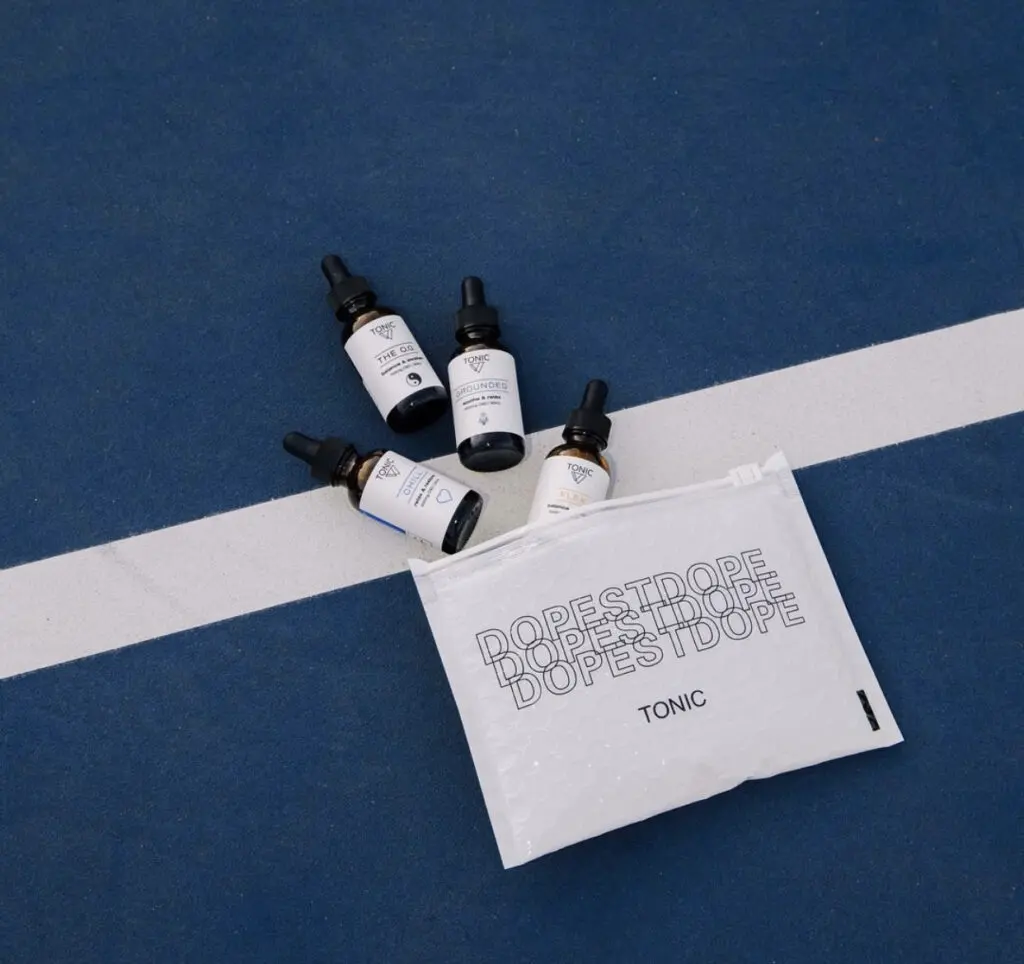
“You need to be careful of what you’re promoting and how you’re promoting it,” says Carbone, who points out that topicals, for example, are okay, but an ad promoting an ingestible product will be taken down. “Sometimes an ad will get approved, and sometimes almost the exact same ad won’t get approved—it’s very hit or miss. And you’re always at risk of getting shut down with no warning.”
Sometimes an ad will get approved, and sometimes almost the exact same ad won’t get approved—it’s very hit or miss. And you’re always at risk of getting shut down with no warning.
Brittany Carbone, founder, TONIC
Case in point: Since this interview, Future Method’s Facebook advertising account has been permanently disabled merely for showing ads like these.
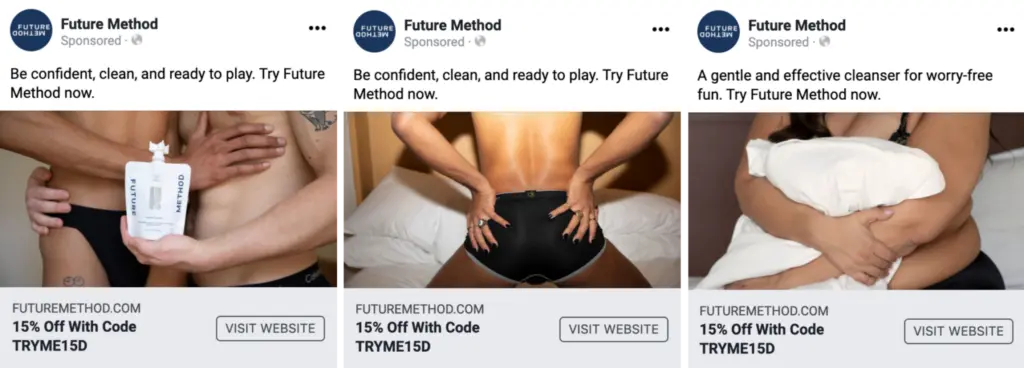
You get banned from reaching your own social followers
Because paid social is an uphill climb, many “taboo” marketers opt instead for an organic social media strategy on platforms like Facebook, Instagram, TikTok, and YouTube. But they live in constant fear of being “shadowbanned”—meaning their accounts are either hidden or made less discoverable because they’ve been flagged as inappropriate.
“Social media is an important communication channel for us—it’s how people see what we do and how we talk to our customers—so we have to worry about being shadowbanned,” Derbaix says. “When you work in the industry we do, you learn not to take too many risks.”

Try to succeed in an edgy industry—without taking risks? It’s just one more backwards lesson “taboo” brands have been forced to swallow. “I’ve worked at other companies and I see the amount of channels available to them—none of them are available to us,” Derbaix says. “Everything we do, we think, ‘Is it going to stick?’ Everything we try, we wonder, ‘Are we going to get banned?’’’
Everything we do, we think, ‘Is it going to stick?’ Everything we try, we wonder, ‘Are we going to get banned?
Simon Derbaix, co-founder, Biird
Derbaix has been so frequently affected by shadowbanning in his career that he organized The Silent Censorship, a petition “highlighting how the current policies around adult content are inconsistent, damaging, and biased.”
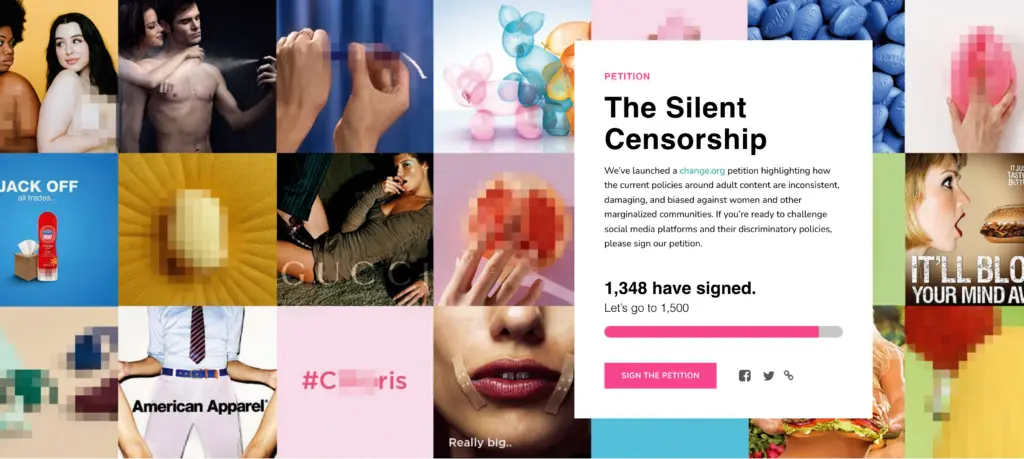
As part of Biird’s organic social strategy, Derbaix has also attempted to pursue influencer marketing—but he acknowledges it’s not a perfect solution. “Many influencers aren’t willing to work with us, which I can understand,” he admits. “But it’s even more tricky when an influencer works with us and their post gets taken down, likely because they got reported. That’s happened to us a few times.”
“It’s scary because we don’t want the influencer to lose their account over something that we would be responsible for,” Derbaix adds. “And it scares the influencer as well, so it becomes harder to work with them again.”
Showing up in search is significantly more difficult
Carbone has been similarly frustrated during her attempts to promote TONIC on Google Ads, another channel many brands rely on to acquire new customers.
She can’t use the term “CBD” on her landing page, for example, but “hemp” is acceptable. On the other hand, if she’s not properly portraying the product at the expense of these Google Ads rules, conversion gets tricky.
“It’s hard enough to get somebody to convert from a click on Google, but then you have to get them to click from your landing page to your website, and then you have to convert the sale from there—it’s hoop upon hoop upon hoop that you have to jump through,” she says.
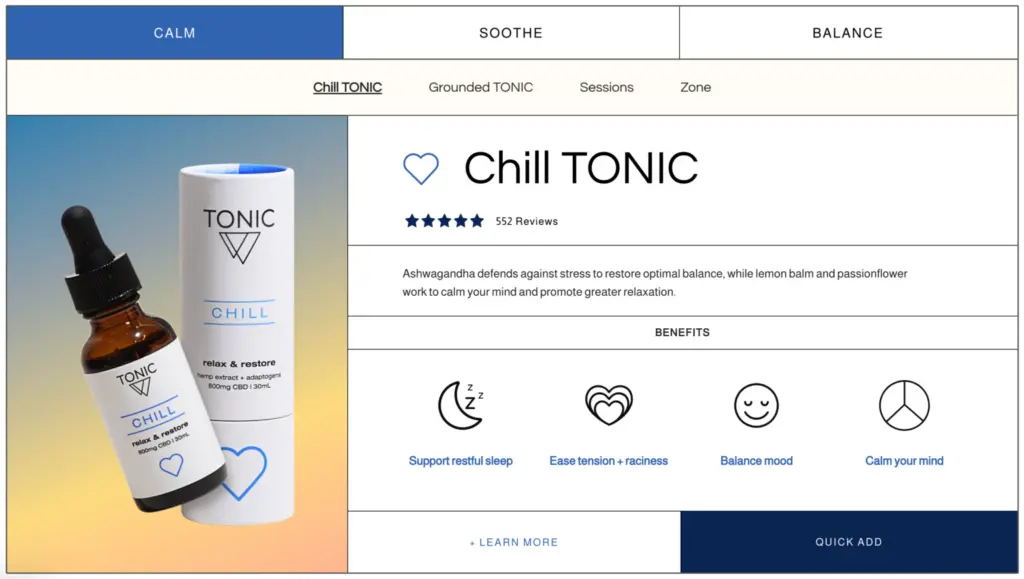
Google never gives you exact guidelines, so it’s hard to strictly stick to a guideline if you don’t even know what the guideline exactly is.
Dean Bring, co-founder and CEO, Mindful
When you turn to traditional media, you’re stuck with “traditional” values
Experienced marketers in “taboo” categories are familiar with the fact that Facebook is prone to rejecting ads that revolve around women’s sexual health and wellness. But after Sarah Jayne Kinney, the chief creative officer and co-founder at Unbound, a sexual wellness company, saw New York City subway ads from men’s health brands that contained suggestive imagery, she felt confident that the world of out-of-home (OOH) advertising was getting more progressive.
Kinney knew that pulling off an OOH ad would be huge for Unbound. She partnered with five artists to illustrate original artwork for a subway ad she believed would further the brand’s mission of being the first mainstream brand in the sexual wellness category.
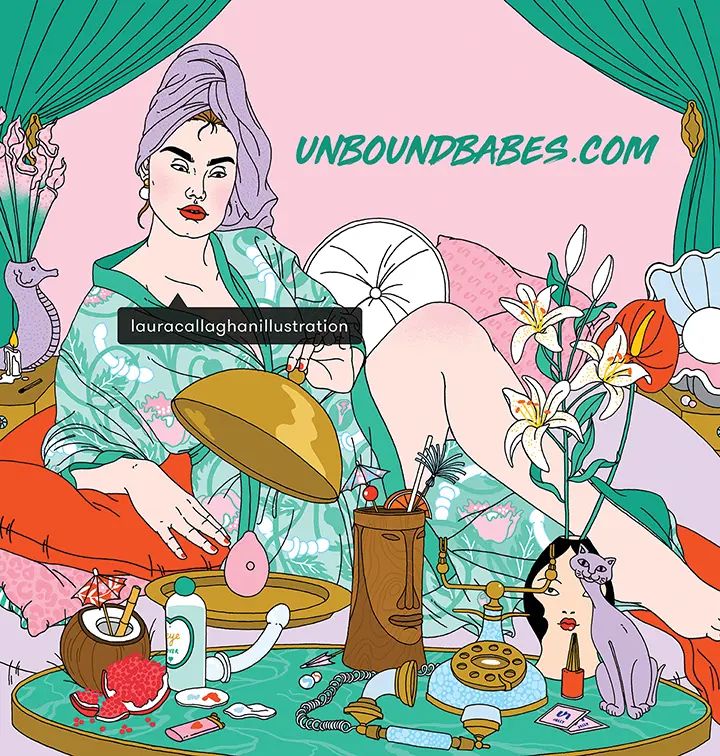
Kinney was shocked when the Metropolitan Transportation Authority swiftly rejected the art, categorizing it as “obscene.”
After the art was rejected, Kinney decided to push back by sharing the illustration with Unbound’s community, launching the #WTFMTA campaign “calling BS on sexism.”
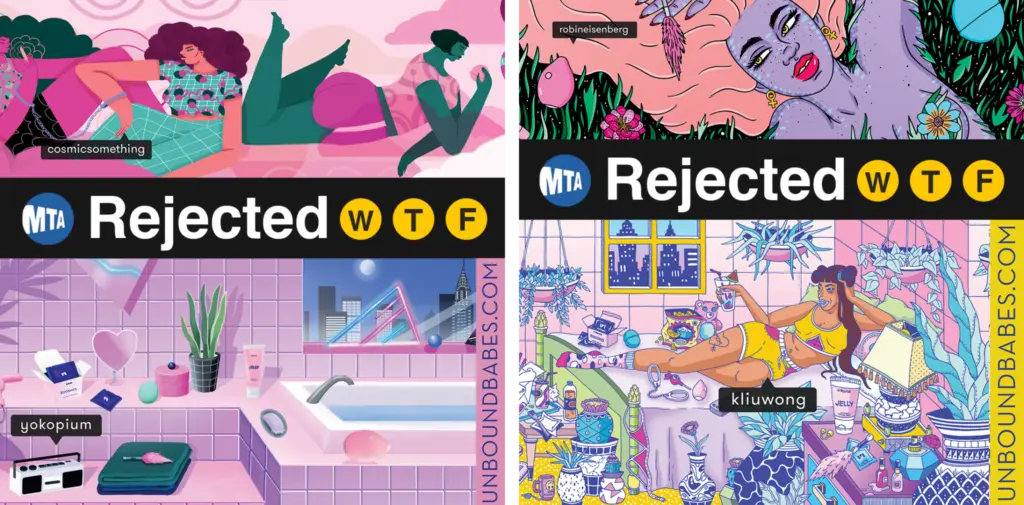
The MTA promised to approve the illustrations—but only if Unbound removed the “phallic imagery.”
“We went back and said, ‘This is a sexist double standard. You can’t tell us why similar ads are accepted and ours weren’t,’” Kinney recalls. “We were more concerned with changing the policy than getting a one-time ad up to say that we did it. But they weren’t willing to work with us to create more transparency around the policies, so we didn’t run the ads.”
We went back and said, ‘This is a sexist double standard. You can’t tell us why similar ads are accepted and ours weren’t.’
Sarah Jayne Kinney, chief creative officer and co-founder, Unbound
This kind of bias is a recurring problem for brands focused on women’s sexual health, Kinney emphasizes.
“When we’re able to find a platform where we can openly talk about these issues, it helps galvanize the conversation,” Kinney says. “But unfortunately, we’re at the mercy of a couple people making these decisions, and I think it’s always going to be a struggle for brands like ours.”

Can’t beat ’em? Ditch ’em: own your relationships
The underlying issue across all these third-party platforms: The guidelines are open to interpretation, and they can change without notice. You can follow the rules, you can submit tasteful imagery, you can refine your copy, you can be cautious in your execution—heck, you can even perform an audit of your entire website—but there are no guarantees because you don’t own the channel.
Ultimately, you’re at the mercy of the algorithm or individual that is reviewing your content.
For any ecommerce brand, owning your marketing channels has always been a necessity in order to relay the right message with the right people at the right time.
“Focus on building owned experiences. You don’t want to be reliant on Google or Facebook or Instagram for the lion’s share of your traffic because your account could get shut down tomorrow for no reason,” Bring says. “Focus on channels where you have control. That’s how you build a great business.”
Focus on channels where you have control. That’s how you build a great business.
Dean Bring, co-founder and CEO, Mindful
Now, amid data privacy changes including the iOS 14.5 update and the phase-out of third-party cookies, “taboo” brands have largely gone unaffected. Instead, they’re well prepared for a future of marketing where owned marketing channels provide invaluable and Customer-First Data™ is at the forefront.
“If 2021 has shown us anything in terms of the volatility of CPM costs and the iOS changes, it’s that we can’t rely on these third-party platforms for our entire customer acquisition strategy,�” Elist points out. “They can be one component of an overall marketing suite, but in terms of profitably acquiring customers, there’s going to be a need to diversify beyond traditional paid marketing channels and focus on brand building, owned channels, and customer retention.”
Bonus: You’re free to build relationships with customers who have a genuine interest in your brand.
“On our owned channels, we can be our authentic self,” Lam says. “We don’t have to beat around the bush—no pun intended. We can say exactly what we want to say, how we want to say it.”
Discover how you can follow in the footsteps of “taboo” brands and market more effectively in a privacy-first world.
Have you encountered similar frustrations being blocked from marketing channels? Reach out to customerfirst@klaviyo.com and share your story.

Related content

Stop wasting time debating attribution models. Learn why traditional attribution is flawed and how Klaviyo’s flexible settings help you measure true marketing impact.
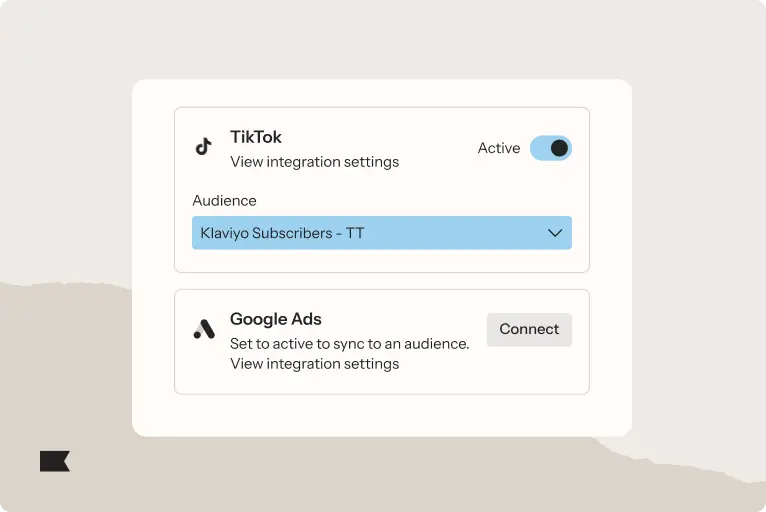
BFCM 2025 campaigns should go beyond short-term sales. Discover how personalized strategies can help turn holiday shoppers into long-term customers.

Learn how to convert website visitors into lifelong customers with these 13 sign-up form examples, + best practices from the experts.